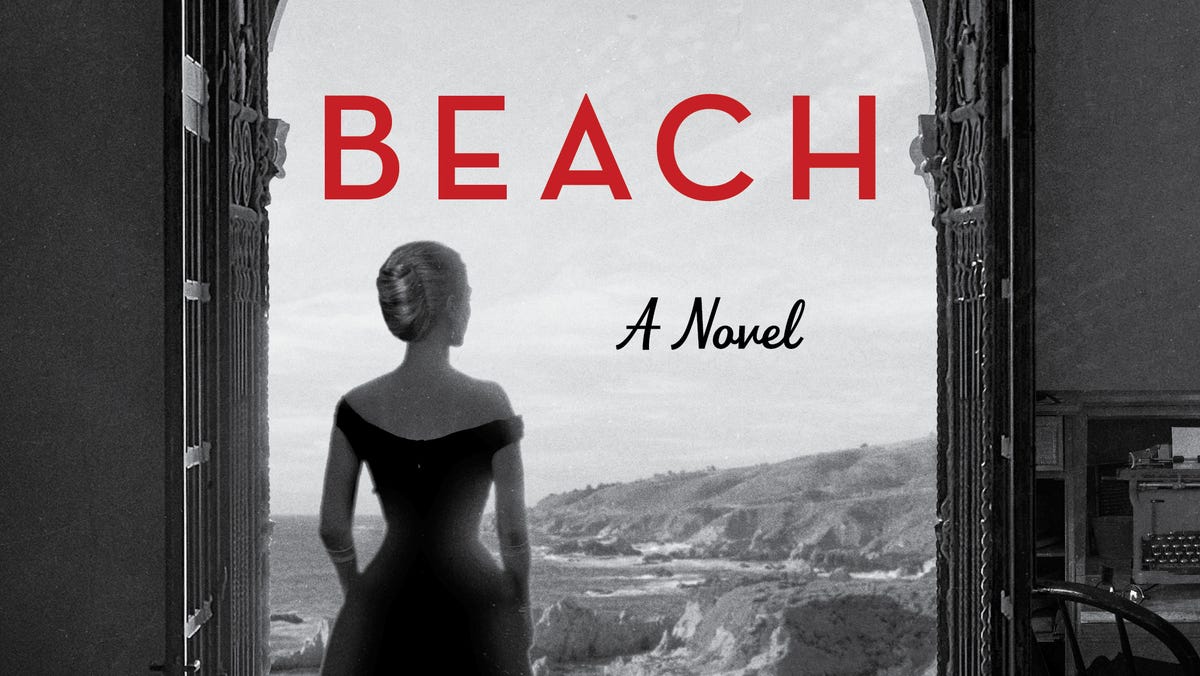Meg Waite Clayton was mulling how to follow up her best-selling 2021 historical fiction novel “The Postmistress of Paris” when fate tapped her on the shoulder.
Her father had died and grief was making writing difficult. Then came the global pandemic, which found the California author hunkered down in the new home she shared with her husband Mac in Carmel-by-the-Sea, California, a picture-book hamlet snuggled up against a crescent-shaped Pacific beach.
And so was born “Typewriter Beach” (out now from HarperCollins), a novel about blacklisted screenwriter Léon Chazan, who goes by Leo, and his journey toward the embrace of family that was denied him by the Holocaust. The tale toggles between Los Angeles during the 1950s McCarthy era, and 2018, when Chazan’s granddaughter Gemma decamps to his old Carmel cottage to meet her own personal and professional destiny.
“Leo just came to me, that’s my father’s middle name, and Gemma is basically Meg backwards,” says Clayton. “It’s not my family’s story per se; my father was a tech executive, not a blacklisted writer. But it all comes from the shreds of my heart.”
Clayton is no stranger to populating novels with real events and even historical figures, and she’s particularly fond of slicing off gritty periods from the mid-20th century.
In “The Race for Paris” (2015), she crafted a tale spotlighting women war correspondents who helped chronicle D-Day, while in “Last Train to London” (2019) she based her heroine on a real Dutch woman who was integral to the fabled Kindertransport that saved many Jewish children during World War II.
In “Typewriter Beach,” we’re in another difficult period where Senator Joseph McCarthy is on a witch hunt to ruin the lives of anyone even remotely suspected of being connected to the Communist party. Often evidence was thin or fabricated, but that didn’t stop McCarthy and others from sending many Hollywood actors and writers into exile. Screenwriters such as Dalton Trumbo had to submit scripts through proxies, often accepting only a fraction of their regular pay.
That dilemma is at the core of “Typewriter Beach,” which also features an appearance by none other than Alfred Hitchcock, who invites Clayton’s ’50s actress character, Isabella Giori, to audition for him. There are other well-known name drops, involving real Oscar night dramas and #MeToo movement trials, all of which bubbled to the fore during the author’s pandemic writing blitz.
“I write best when I write about the things I’m passionate about. And beyond being interested in the impact of the blacklist, I’d been writing opinion pieces for some time about the treatment of women in Hollywood,” she says.
How women are treated in Hollywood is a big focus on the novel ‘Typewriter Beach’
In this new novel, Giori is an up-and-coming actress whose life is upended by the scrutiny and demands of a publicity machine that doesn’t allow actors to simply be themselves. On the run, she leaves Los Angeles for Carmel. Clayton says she mined those details from reading about real legends from Grace Kelly to Marilyn Monroe, whose careers were subject to intense scrutiny and control.
Ingrid Berman was virtually blackballed after her scandalous extramarital affair with Italian director Roberto Rossellini, a marriage that would later produce actress Isabella Rossellini. She stayed away from the Oscars in 1957 despite winning for “Anastasia.”
For Clayton, the power of fiction over news reports is rooted in the heart. “History you read about, but with historical fiction you try and make people feel what it might be like to have something powerful happen to you,” she says.
Part of what keeps “Typewriter Beach” clicking along are the overlapping references to Hollywood then and now, especially when a guest appearance is made by the murder-mystery icon best known simply as “Hitch.”
To make sure his presence was genuine, Clayton watched countless hours of Hitchcock interviews and “made sure I watched many of his greatest works, which frankly was a great excuse to watch movies during the daytime,” she says.
As for the accuracy of Hitch’s comments and behavior in her novel, Clayton says that while creative license is fair game after someone dies, “I still felt compelled to make sure that things resonated, whether it was his love of eating many steaks at a time or his relationship with his wife, Alma, or the description of the house they had just north of Carmel. It’s all the way it was.”
In writing the new book, Clayton also got to know her new hometown better, strolling its tree-dotted and canopied streets, discovering its hidden beaches and learning about its famous poet Robinson Jeffers. She even dove into 1950s town gossip by perusing the archives of the local paper, the improbably named Carmel Pine Cone.
Searching old copies, she’d stumble upon articles announcing that Bing Crosby had just arrived for the season, see ads for movies playing at the local theater and scan announcements detailing which resident had just gotten a telephone. It all made it that much easier to make Carmel-by-the-Sea a key protagonist in her latest work.
“It’s this tiny town known the world over for its cottages and fog and famous residents like Clint Eastwood, Doris Day and now even Brad Pitt,” she says. “But the gift I personally got from the pandemic was being able to focus on where I now lived. And that was just wonderful.”
